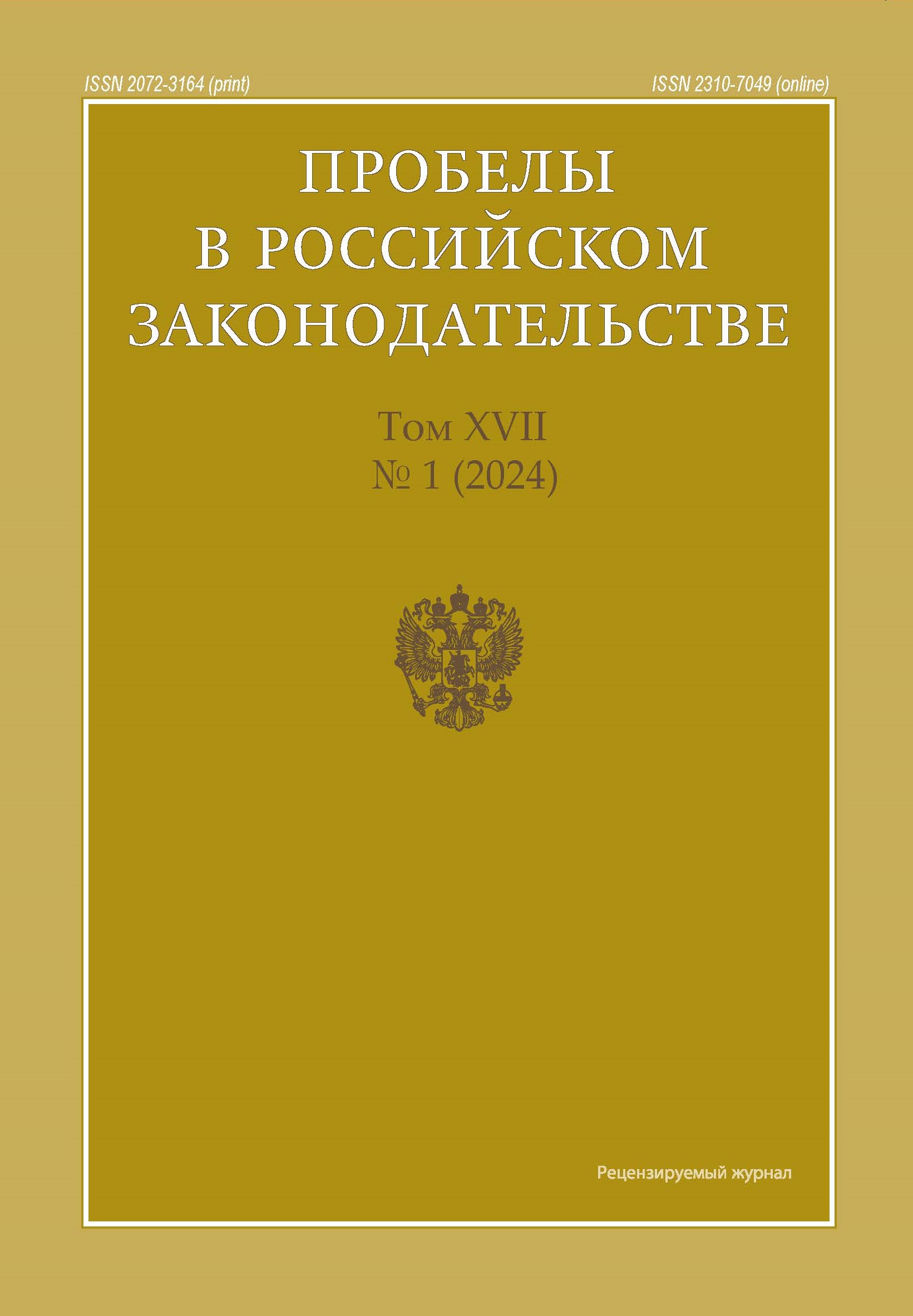Отдельные проблемы оценки допустимости и достоверности доказательств по уголовным делам
- Авторы: Винокуров Э.А.1, Ковтун Ю.А.2
-
Учреждения:
- Белгородский юридический институт МВД России имени И.Д. Путилина
- Белгородский государственный национальный исследовательский университет
- Выпуск: Том 17, № 1 (2024)
- Страницы: 131-136
- Раздел: Уголовно-правовые науки
- URL: https://journals.eco-vector.com/2072-3164/article/view/629256
- EDN: https://elibrary.ru/OEAWYH
- ID: 629256
Цитировать
Аннотация
Цель исследования. В статье рассматриваются проблемы оценки доказательств по критериям допустимости и достоверности. Анализируется современная правоприменительная практика посвящённая практическим проблемам оценки доказательств. Проводиться анализ сформированной судебной практики признания допустимыми доказательствами, которые получены с нарушением требований УПК РФ, в виду несущественных нарушений установленного уголовно-процессуальным законодательством порядка их собирания и закрепления следователем (дознавателем). Обосновывается позиция, тем что доказательство не может быть достоверным частично (в части), поскольку нельзя характеризовать доказательство как вероятное или достоверное в той или иной части, степени.
Выводы. В результате проведенного исследования авторы приходят к выводу, что «допустимости» и «достоверности» как свойств доказательств нужно рассматривать в тесной взаимосвязи друг с другом, так как данные понятия в совокупности позволяют дать полную оценку обстоятельствам, подлежащим доказыванию по уголовному делу. Допустимость как формально-юридическое свойство и достоверность как содержательное свойство придают сведениям, которые рассматриваются в ходе уголовного дела возможность их использования в качестве доказательств при принятии процессуальных решений. Сведения, имеющие доказательственное значение, должны быть получены в соответствии с процессуальным порядком производства следственных и иных процессуальных действий, любые нарушения требований уголовно-процессуального законодательства относительно порядка собирания и закрепления доказательств, должны приводить к признанию доказательств недопустимыми.
Полный текст
Об авторах
Эдуард Александрович Винокуров
Белгородский юридический институт МВД России имени И.Д. Путилина
Автор, ответственный за переписку.
Email: VinokurovEA@yandex.ru
кандидат юридических наук, доцент кафедры уголовного процесса
Россия, БелгородЮрий Анатольевич Ковтун
Белгородский государственный национальный исследовательский университет
Email: belad@yandex.ru
кандидат юридических наук, доцент, доцент кафедры гражданского права и процесса юридического института
Россия, БелгородСписок литературы
- Постановление Пленума Верховного Суда Российской Федерации от 19.12.2017 № 51 О практике применения законодательства при рассмотрении уголовных дел в суде первой инстанции (общий порядок судопроизводства) // Бюллетень Верховного Суда РФ. – № 3. – Март. – 2018.
- Воскобойник И.О. Некоторые аспекты свойства допустимости доказательств по уголовным делам / И.О. Воскобойник // Российско-азиатский правовой журнал. – Барнаул, 2021. – №1. – С.8-11.
- Иовин А.А. К вопросу о понятии и содержании допустимости доказательств / А.А. Иовин // Достижения науки и образования. – Краснодар, 2021. – №7(79). – С.42-43.
- Капустина Л.К. Соотношение допустимости и достоверности доказательств в уголовном судопроизводстве / Л.К. Капустина // Вестник Казанского юридического института МВД России. – Казань, 2019. – №3(37). – С.386-390.
- Корнакова С.В. К дискуссии о свойствах относимости, допустимости и достоверности уголовно-процессуальных доказательств / С.В. Корнакова // Русский закон. - Иркутск, 2021. – №9(178). – С.67-76.
- Лебедев Н.Ю., Степанов С.А. Достоверность и достаточность доказательств в уголовном судопроизводстве: понятие, значение и проблемы установления / Н.Ю. Лебедев, С.А. Степанов // Закон и право. - Новосибирск,2022. – №4. – С.146-150.
- Овсянников И.В. Проблема достоверности доказательств в доказательственном праве России / И.В. Овсянников // Современное право. – 2004 – № 7. – С. 35-41.
Дополнительные файлы









